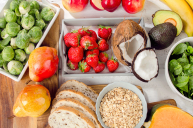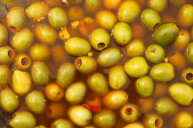You know how some parents painstakingly seek good, healthy food to feed their small babies? Well, if we're going by a recent study conducted by the George Institute for Global Health, I have some unfortunate news! Evidently, two-thirds of baby foods in the United States are bad for your babies.
Videos by Wide Open Country
Roughly 60% of infant and toddler foods "fail to meet nutritional recommendations." Researchers did an assessment of 651 food products marketed toward babies sold in the most prominent grocery stores in the United States. What they uncovered was more than a little worrying.
"Among all products, 70 percent failed to meet protein requirements and 44 percent exceeded total sugar requirements. A further one in four products did not meet calorie requirements and one in five exceeded recommended sodium limits," the study specifies. According to Dr. Elizabeth Dunford, a Research Fellow at the George Institute, the rise of processed, convenient foods for younger children is something to be concerned about.
"Early childhood is a crucial period of rapid growth and when taste preferences and dietary habits form, potentially paving the way for the development of chronic diseases such as obesity, diabetes, and some cancers later in life," Dunford states.
"Time-poor parents are increasingly choosing convenience foods, unaware that many of these products lack key nutrients needed for their child's development and tricked into believing they are healthier than they really are."
Two-Thirds Of Baby Food Isn't Good For Your Babies
Baby food pouches, specifically, seem to take up a good amount of the unhealthy load. "Concerningly, pouches ranked among the unhealthiest products assessed, with fewer than 7 percent meeting total sugar recommendations."
Additionally, the study points to dishonest marketing as another major contributor to babies receiving unhealthy food. "The study also revealed the extent of misleading marketing practices, with almost all (99.4 percent) products featuring at least one prohibited claim on their packaging. On average, products displayed four prohibited claims, with some displaying as many as 11."
It's overwhelming information, truth be told. It can already be difficult to discern what is or isn't healthy when it comes to a person's dietary needs. Now, it's more important than ever to make sure you're paying close attention to what you're feeding your children.




